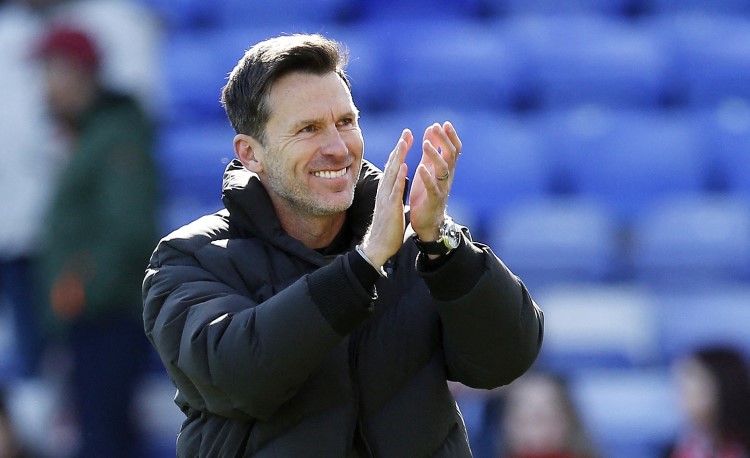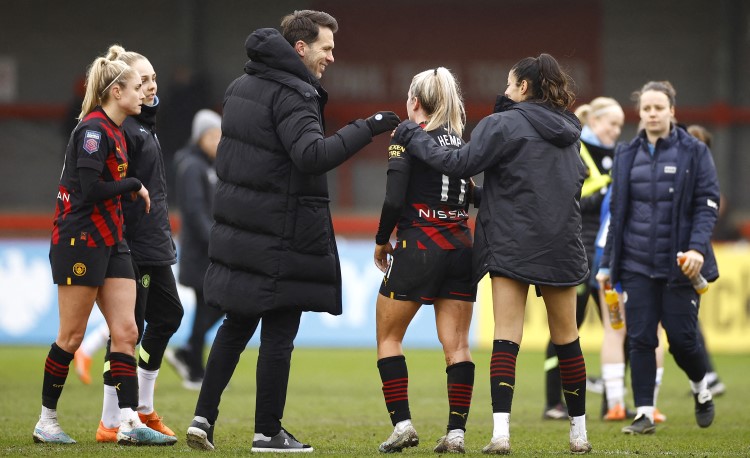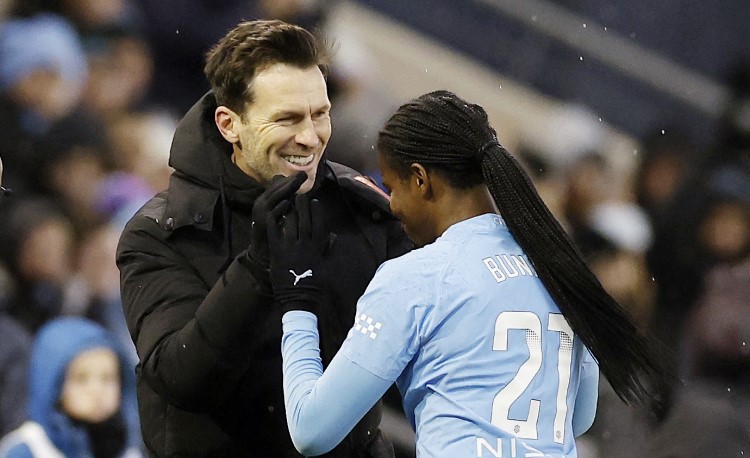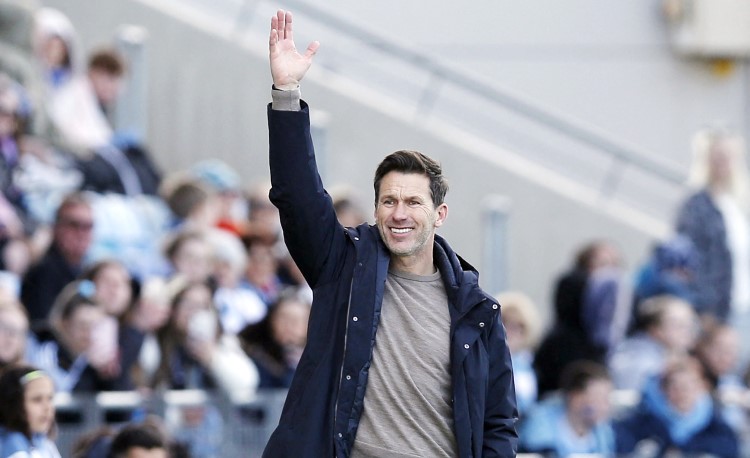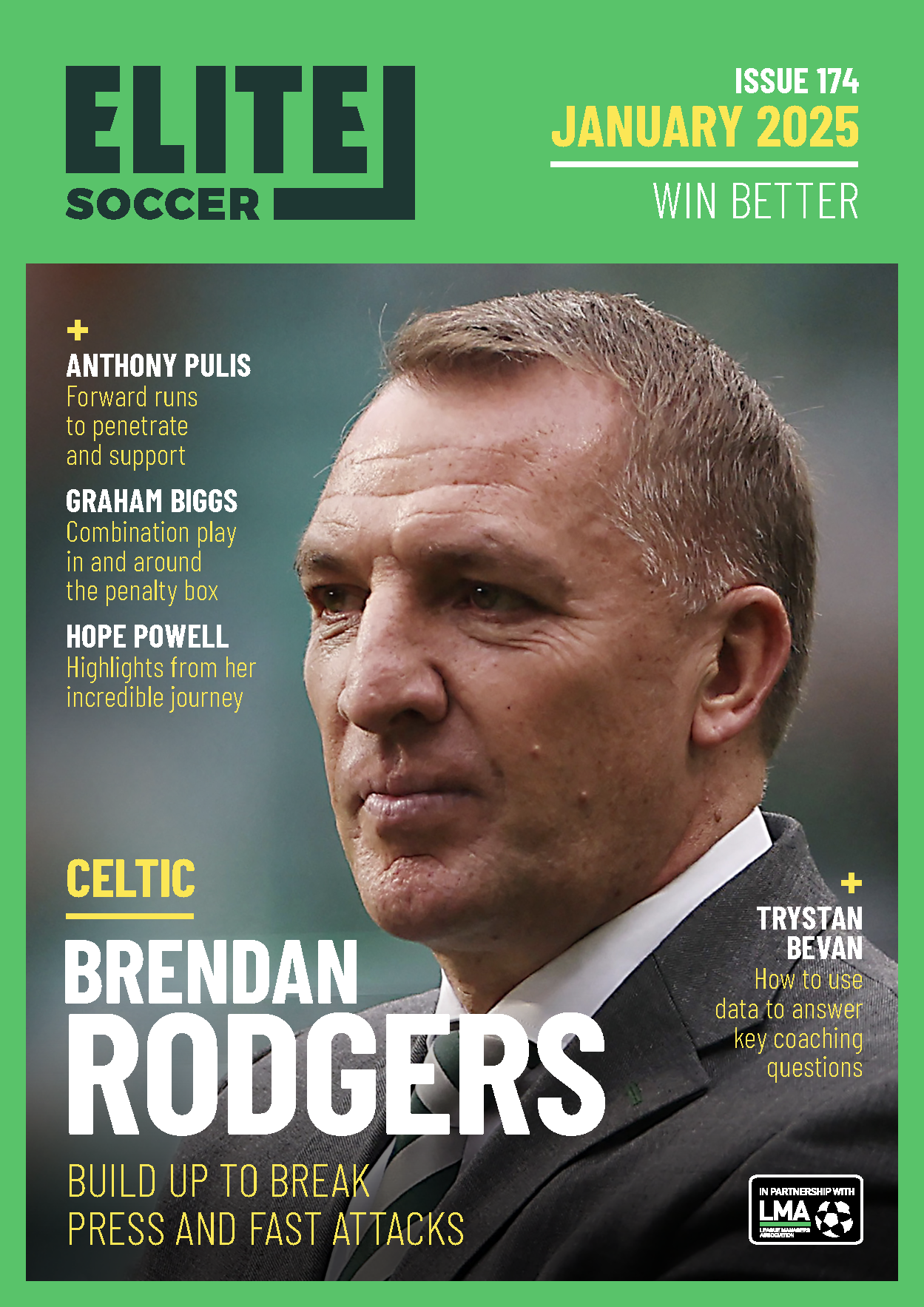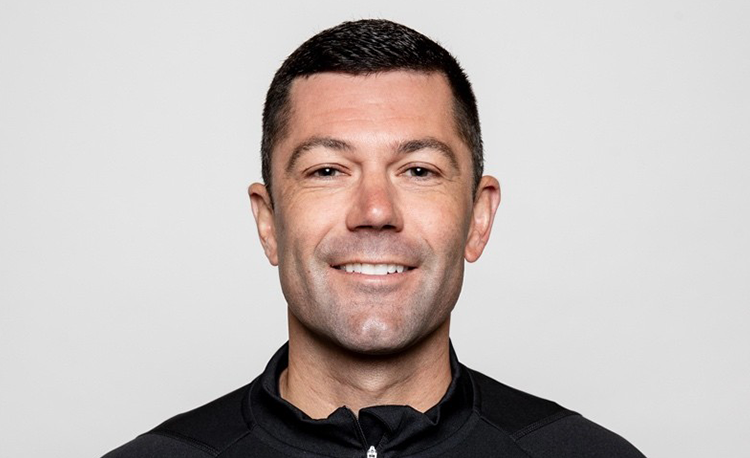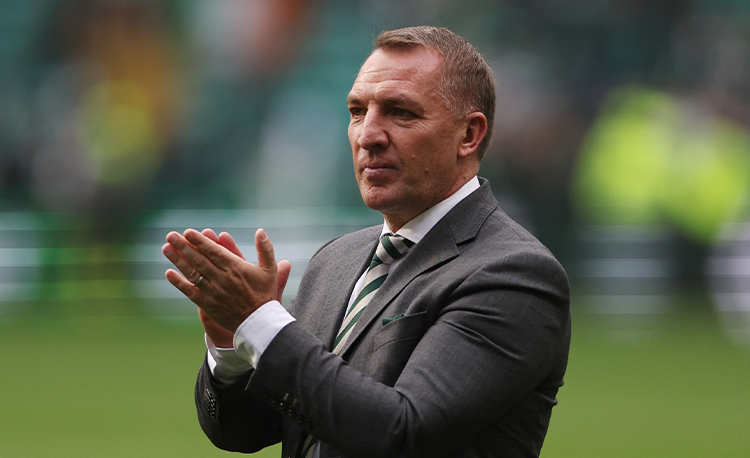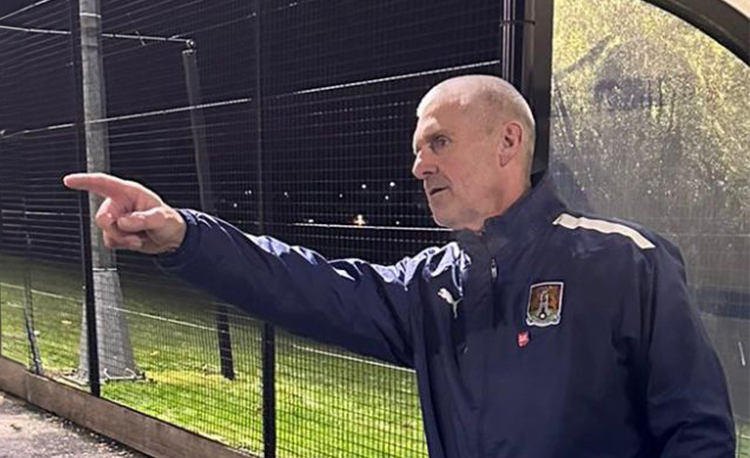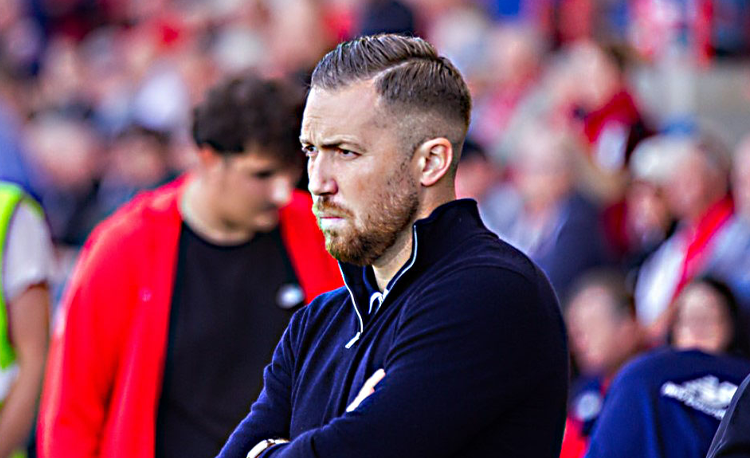You are viewing 1 of your 1 free articles
Gareth Taylor: The path to success
Since retiring from a successful 20-year career as a player, Gareth Taylor has honed his style as a coach who, while never compromising on standards, believes in dialogue and collaboration. Head coach of Manchester City Women since 2020, Taylor talks us through his journey so far.
It was a long and enjoyable journey from player to manager. There were many influences along the way, all of which shaped my style and approach. It was about five years before hanging up my boots as a player that I really began to think about what I might do afterwards. I approached The FA about starting my coaching badges and, over the course of the next 10 years, I worked my way up to my Pro Licence.
Towards the tail end of my playing career, I was lucky enough to play under Sean O’Driscoll and Richard O’Kelly at Doncaster Rovers, who encouraged me to start thinking more deeply about the game. Then, at Wrexham, Dean Saunders gave me the opportunity to coach the reserves. It was a fantastic experience for me to have to stand up in front of my peers and talk about the game, to show empathy with them and develop my communication skills.
I joined Manchester City as an academy coach. Working with young age groups all the way up to the U18s was a fantastic experience and the ideal environment to be in as a fledgling coach. As much as you want to win with the academy sides, the emphasis is on learning and developing. You have the space and opportunities you need to try things out and practise, to make mistakes and not worry too much about the results.
All that changed when I took the role of head coach at Manchester City Women in 2020. However, it didn’t change how I viewed the game or my approach as a manager. While I understand the importance of winning, I’ve never sacrificed my teams’ style of play nor identity in the pursuit of results.
I was in a good position to move over to the women’s game. I had worked with the previous head coach of Manchester City Women, Nick Cushing, at the academy. When he took on the role with the women’s side, I was coaching the U18s, so we’d be working on adjacent pitches and would talk often. It was a great environment in which to share ideas and experiences, and to learn.
“I’ve never sacrificed my teams’ style of play nor identity in the pursuit of results”
Because of that proximity, I was also already familiar with many of the Manchester City Women players – the likes of Steph Houghton, Jill Scott and Karen Bardsley – by the time I became head coach.
Moving to the women’s game took some adjustment.
Related Files
While many things are very similar between coaching male and female players, I also found subtle differences. For example, with women it’s perhaps even more important that the players feel a part of what you are trying to achieve and that you involve them in it. That’s when you get results. With male players, meanwhile, the emphasis is on giving clear, straightforward instructions about what you want from them. Both challenge you as a coach, but in different ways. It has been fascinating for me to deconstruct my ideas on coaching, especially in terms of how you convey your messages and win the buy-in of the players and staff.
The learning curve since I retired as a player has been steep. I always make sure I’m capturing that learning, whether that’s reflecting personally on discussions I’ve had or on what I’ve taken from the week, or sitting down with my staff to go through video clips. I’m in a profession where you have to win games and be there all the time, but I’m also fortunate to work for a fantastic club with big ideas, big plans and a big-picture mentality. I’m also very fortunate to work only a couple of pitches away from one of the greatest managers to ever grace the game. Being able to learn from someone like Pep Guardiola is invaluable.
“Female players need to feel a part of what you are trying to achieve - that’s when you get results”
Building our culture and identity is important. That has been especially challenging for us, as we’ve been sharing a building with the Manchester City academy. When we move to a separate onsite facility we’ll be able to do so much more in terms of developing our identity as a team. Of course, it is the players who drive the culture, and the personalities that we have within the group are really important in that. We have a leadership group within the team and we’re in constant communication about all kinds of things, from how we travel and prepare for games, to what we expect from them and they from us in return.
That dialogue is something that has developed considerably since I took on the role, and it’s incredibly important. More often than not, the players have all the answers.
I try to be there for people as much as I can. I’ve learned that I’m a bit of a people-pleaser, which isn’t always good for you, but equally I’m able to switch off fairly easily and to offload when I need to. I know from my own experience as a player how important it is to have an environment that is both supportive and challenging, and that’s what we aim to provide for our players.
You need to get the balance right, however, because every player is different; some need more support than others, and some need more than they will have you believe. We offer a lot of emotional and physical support, tapping into lots of information on female health, and conducting wellness checks every day. There’s a continuous dialogue between us, because you need to get to know the players as people, not just as professionals, to understand how they like to receive information and what they need from you in order to be at their best, mentally and physically.
I’m picky on standards, almost to the point of obsession. But at the same time, I want everyone to have fun, because it’s when it starts to feel like a job that you really struggle.
“Players drive the culture”
I genuinely care about the people around me, how they feel about me as a leader, and whether they are able to express themselves and spread their wings. That’s something that has become increasingly important to me since I first started as a head coach. In the early days, I tried to do far too much by myself, but I’ve learned how important it is to place your trust in others. My players and staff should all be able to enjoy the journey we’re on.
Editor's Picks
Using the goalkeeper in build-up play
Pressing principles
Intensive boxes drill with goals
Penetrating the final third
Creating and finishing
My philosophy
Pressing initiation
Compact team movement
Defensive organisation
Coaches' Testimonials

Alan Pardew

Arsène Wenger

Brendan Rodgers

Carlos Carvalhal

José Mourinho

Jürgen Klopp

Pep Guardiola

Roy Hodgson

Sir Alex Ferguson

Steven Gerrard
Coaches' Testimonials

Gerald Kearney, Downtown Las Vegas Soccer Club

Paul Butler, Florida, USA

Rick Shields, Springboro, USA

Tony Green, Pierrefonds Titans, Quebec, Canada
Join the world's leading coaches and managers and discover for yourself one of the best kept secrets in coaching. No other training tool on the planet is written or read by the calibre of names you’ll find in Elite Soccer.
In a recent survey 92% of subscribers said Elite Soccer makes them more confident, 89% said it makes them a more effective coach and 91% said it makes them more inspired.
Get Monthly Inspiration
All the latest techniques and approaches
Since 2010 Elite Soccer has given subscribers exclusive insight into the training ground practices of the world’s best coaches. Published in partnership with the League Managers Association we have unparalleled access to the leading lights in the English leagues, as well as a host of international managers.
Elite Soccer exclusively features sessions written by the coaches themselves. There are no observed sessions and no sessions “in the style of”, just first-hand advice delivered direct to you from the coach.
